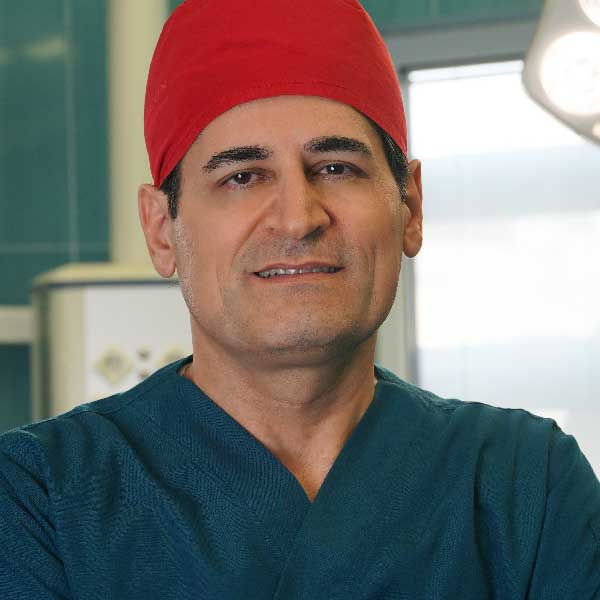Those who intend to undergo plastic surgery spend most of their time learning about the surgical procedure and its potential results. While there is a much more important point: choosing the right plastic surgeon.
Like other scientific categories, not every doctor is qualified or has enough experience to perform every operation. A visit to the doctor’s office and internet research can be a good start, but as a potential aesthetic surgery candidate, you may be putting your safety and appearance at risk by making the wrong choice.
I try to help you in the accurate evaluation of the surgeon.
You want the aesthetic surgeon you choose to be excellent: a proven specialist.
When making this important choice, you need to ask yourself a few questions:
• Does my chosen surgeon have the necessary expertise to safely perform the procedure? (expertise)
• Does the doctor have the experience of performing this procedure? Experience
• Have the results of his operation been exceptional for other applicants? (Exceptional results)
If your chosen surgeon has all three of the above qualities, congratulations on your choice.
These three items start with the letter E and are called 3 E’s.
Key parameters of plastic and aesthetic surgeon evaluation
1. 3 E
a. Expertise
Plastic surgery is a very complex specialty that requires years of training and persistence. Researching the surgeon’s professional and active involvement in training and providing necessary explanations about the procedure you are considering will determine the surgeon’s awareness of new techniques and technologies.
b. Experience
In addition to having the correct training, the doctor you are looking for should have experience in performing the requested surgery. Each surgeon specializes in a specific method. It is necessary that your type of action is among his “top three”. It is better if the surgeon has performed your desired procedure at least once a week for five years.
c. Exceptional results
In addition to having high experience and expertise, the results of surgery should be eye-catching and exceptional. The vast majority of plastic surgeons keep before and after pictures, which you should review.
By keeping these three E’s in mind, you will ensure the physical part of your plastic surgery. But there are more. One of these cases is the personality of the aesthetic surgeon. The way the surgeon interacts with the patient determines the difference between a good plastic surgeon and a great plastic surgeon. To make this assessment, I would like to draw your attention to the three C’s and the three A’s.
2. 3 C
The surgeon should be caring, compassionate and completely empathetic, concerned about your feelings and health.
3. 3 A
It is necessary for a surgeon to have good communication skills while having self-confidence, with qualities such as amiable, available, and able.
Your relationship with the surgeon and the way his staff interact will have a significant impact on your experience and the outcome of your operation. Your happiness and self-confidence have positive effects on having a comfortable and stress-free experience and even have a great impact on the recovery period and the final result of the operation.
Your red line in choosing a plastic and beauty surgeon
Refusal to answer your questions
• Lack of respect
• Failure to provide photos before and after surgery of previous clients
• A surgeon who tries to ignore the possible risks and complications of surgery or refrain from expressing them
• The surgeon’s effort to guarantee results
• The surgeon’s disregard for post-operative care
• The surgeon not talking about the actual results (advantages and disadvantages of the desired procedure).
Cost
Given that insurance companies refuse to pay for cosmetic surgery, offering low prices is usually tempting. It is important to know that lower than average fees are usually a reflection of the surgeon’s limited experience. To know the average price, visit at least three doctors. Is it reasonable to sacrifice the experience and good history of a surgeon?
Plastic surgeon evaluation and comparison checklist by the patient
a. When entering the office
1. Is the office clean, tidy and professional?
2. Are the staff friendly and polite and seem happy to see you?
3. Is the office atmosphere warm and exciting?
b. While you wait to see the surgeon
1. Fill out the form(s) accurately. The more comprehensive the better.
2. Be generous with your complete medical history and anything that will help you plan better and safer before, during, and after the procedure.
3. Provide a complete history and list of medications and supplements taken.
c. During the meeting with the surgeon
1. Do you feel good about the way the surgeon treated you?
2. Does he pay attention to your worries and concerns?
3. Does the surgeon understand your expectations?
4. Does it help you understand your options?
d. Important questions to ask the surgeon:
1. Am I a suitable candidate for the procedure of my interest? If the surgeon’s answer is negative, ask the reason.
2. How many times have you performed the procedure I want?
3. What are the possible risks and dangers of this procedure?
4. What are the benefits of doing this procedure?
5. Which specialized boards do you have?
6. Where is the surgery performed?
7. Is the surgery center in question sufficiently accredited?
8. Do you have hospital license? If the answer is yes, ask where it is.
9. Who administers anesthesia? Ask about the work qualification and quality of anesthesia personnel.
10. Which anesthesia method is used for this procedure?
11. What are the qualifications of your colleagues in the surgery department?
12. In case of an unexpected accident during surgery, what will be your reaction?
13. Have you treated patients with conditions similar to mine? Can I see their before and after photos?
e. during physical examination (mental note-taking)
1. Does the surgeon behave professionally and politely?
2. Did the doctor understand your desired areas?
3. Did the surgeon understand your expectations?
4. Does it help you better understand the options ahead?


